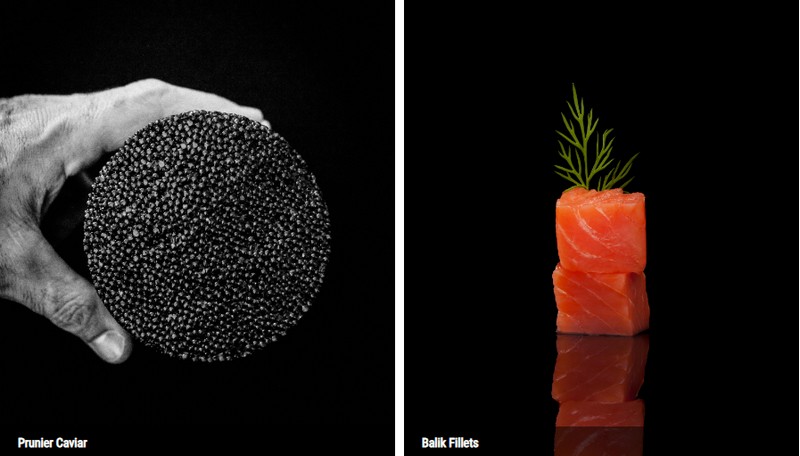Staff at gourmet seafood bars in airports including Heathrow and Gatwick have been allowing passengers to buy potentially illegal amounts of caviar for travel, the Guardian has found.
Caviar – eggs from endangered sturgeon and paddlefish – is a restricted product under rules governing worldwide trade, with a personal allowance of 125g for most international travel.
The rules were adopted to regulate an industry where overfishing, a thriving black market and illegal poaching had brought several species to the brink of extinction.
While there is no limit within the EU, a person caught travelling to or from elsewhere with too much of the delicacy could face a fine or potentially time in jail under wildlife protection laws.
At Heathrow, Gatwick, Paris Charles de Gaulle, Copenhagen and Zurich airports, staff for one leading chain, Caviar House & Prunier, incorrectly said there was no limit or that it was more than 1kg.
An employee at the company’s Hong Kong airport shop offered to provide cooling boxes to keep multiple tins of caviar fresh for long-haul flights. Of all the outlets contacted by the Guardian, only one, at Frankfurt airport, advised a 125g limit.
Meanwhile, on Heathrow’s website, passengers are able to purchase 250g tins of caviar for £840 in advance and pick them up before they board international flights.
Peter Rebeiz, Caviar House & Prunier’s chief executive, said his staff should know the rules and training session were held often to update them. However, he said some shops had been franchised with circulating staff. “I would like to tell you 100% that they all know, but it’s not the case unfortunately.”
Additionally, he said that unlike duty-free shops, his were taxpaying, meaning staff could not demand to know where customers were going. Other shops often make sure passengers cannot buy illegal amounts of controlled products for travel, such as cigarettes and alcohol, by checking their tickets.
“Bear in mind that not everybody tells us where they travel to. We’re not bound to – actually, we’re not even allowed to – ask for their boarding passes.”
It is not clear how many travellers have been affected or if any arrests have been made. Legally, it is the responsibility of the individual traveller, not the company selling the product, to make sure they are not carrying contraband.
The UK’s Border Force seizes several kilos of caviar a year, according to reports it publishes.
In the US, the rules on moving caviar are even tighter. There is a complete ban on the import of one type of highly prized roe from the critically endangered beluga sturgeon (Huso huso).
Multiple Caviar House & Prunier bars in terminals that board flights to the US sell beluga caviar, and some staff at Heathrow and Gatwick said there was no issue transporting it there.
Rebeiz said he had never heard of legal action being brought against a customer, but he recalled one case where a passenger travelling to the US with beluga caviar had it confiscated. “We basically paid him back. I felt my staff should have warned him,” he said.
Following the overfishing of sturgeon in the Caspian and Black seas, trade in wild stocks was suspended in 2006 to prevent extinction. Captive breeding in large tanks is controversial because in some farms overcrowding causes the animal stress, and also because the roe sacks are normally cut out of the fish’s belly, which in several cases has been done while it is alive.
Rebeiz said his company, which has been selling caviar for more than a century, stopped sourcing wild-caught sturgeon products two decades ago. His sturgeon, numbering about 150,000, live in filtered river-feed tanks. The company’s website said it raises the fish until they are eight years old and their eggs are removed only once, after the fish are killed for meat.
“One hundred per cent of our caviar sales are farmed caviar,” Rebeiz said. “I was the first one to completely stop [using wild-caught products].”
There remains illegal fishing in the wider industry, and of the 27 species of sturgeon and paddlefish, 85% are on the brink of extinction. Wild-caught caviar is also sometimes laundered by mixing the eggs into farmed stock.
For those reasons, Hiromi Shiraishi, who has monitored the legal and illegal trade in caviar, said companies selling tins of the fish eggs had an obligation to inform customers on the rules.
“In that sense, I think it’s very important to adhere to the regulations,” said Shiraishi, who works as a programme officer focused on fisheries at Traffic, a wildlife trade monitoring network.
A UK government spokesperson said: “Caviar is not banned but is controlled. Border Force’s role is to control the movement of such flora and fauna into and out of the UK, and we take seriously any attempts to circumvent those controls.”
guardian.co.uk © Guardian News & Media Limited 2010
Published via the Guardian News Feed plugin for WordPress.


